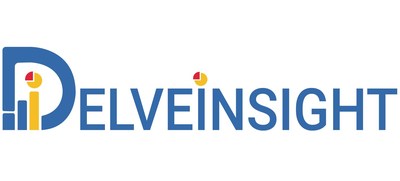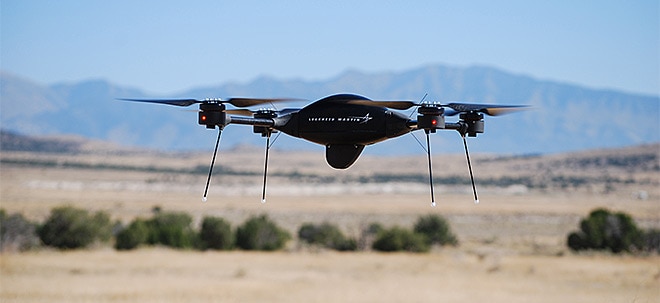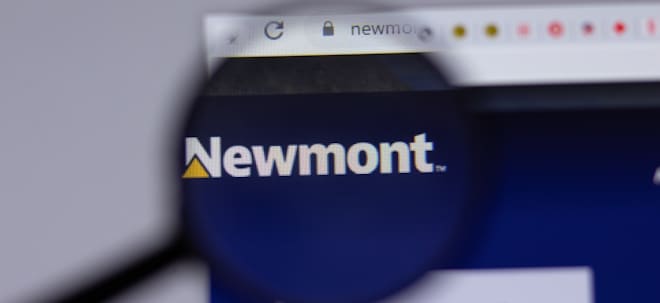CD40/CD40L Inhibitors Market on Growth Trajectory Driven by Advancements in Autoimmune and Cancer Therapeutics | DelveInsight
The CD40/CD40L inhibitors market is experiencing steady growth driven by increasing research into autoimmune diseases, organ transplantation, and cancer immunotherapy. The rising prevalence of rheumatoid arthritis, systemic lupus erythematosus, and other inflammatory conditions is boosting demand for targeted immune-modulating therapies. Additionally, advancements in biologics and monoclonal antibody development are expanding the therapeutic pipeline.
LAS VEGAS, July 24, 2025 /PRNewswire/ -- DelveInsight's CD40/CD40L Inhibitors Market Size, Target Population, Competitive Landscape & Market Forecast report includes a comprehensive understanding of current treatment practices, addressable patient population, which includes top indications such as SLE, ALS, Multiple sclerosis, Thyroid eye disease, and others. The selected indications are based on approved therapies and ongoing pipeline activity. The report also provides insights into the emerging CD40/CD40L inhibitors, market share of individual therapies, and current and forecasted market size from 2020 to 2034, segmented into 7MM.

Key Takeaways from the CD40/CD40L Inhibitors Market Report
- As per DelveInsight's analysis, the total market size of CD40/CD40L inhibitors in the 7MM is expected to surge significantly by 2034.
- The report provides the total potential number of patients in the indications, such as SLE, ALS, Multiple sclerosis, Thyroid eye disease, and others.
- Leading CD40/CD40L inhibitors companies, such as Sanofi, UCB, Biogen, Amgen, Eledon Pharmaceuticals, Kiniksa Pharmaceuticals, Memgen, H. Lundbeck, Tonix Pharmaceuticals Holding Corp, and others, are developing novel CD40/CD40L inhibitors that can be available in the CD40/CD40L inhibitors market in the coming years.
- Some of the key CD40/CD40L inhibitors in the pipeline include Frexalimab, Dapirolizumab Pegol, Dazodalibep, Tegoprubart (AT-1501), Abiprubart (KPL-404), MEM-288, Lu AG22515, TNX-1500, and others.
- As per the first quarter results of Eledon Pharmaceuticals in May 2025, the company anticipates the updated interim clinical data from the ongoing Phase Ib open-label trial evaluating tegoprubart for the prevention of organ rejection in kidney transplant patients in August 2025.
- In April 2025, Tonix Pharmaceuticals and Makana Therapeutics announced a collaboration combining Tonix's TNX-1500 with Makana's genetically engineered organs in preclinical and clinical xenotransplantation studies.
- In February 2025, Tonix Pharmaceuticals announced the positive topline results from the Phase I trial for TNX-1500 for the prevention of kidney transplant rejection and treatment of autoimmune diseases.
Discover which indication is expected to grab the major CD40/CD40L inhibitors market share @ CD40/CD40L Inhibitors Market Report
CD40/CD40L Inhibitors Market Dynamics
The CD40/CD40L signaling pathway plays a pivotal role in modulating immune responses, inflammation, and tumor immunity. Overactivation of this pathway has been implicated in a variety of autoimmune diseases, chronic inflammatory conditions, and even cancer. Consequently, the development of CD40/CD40L inhibitors has gained significant traction in recent years. Market dynamics for these inhibitors are being shaped by a growing understanding of immune modulation, increased R&D activities, and expanding indications beyond autoimmune diseases to include transplant rejection and oncology.
The competitive landscape for CD40/CD40L inhibitors is relatively nascent, with only a few advanced clinical-stage candidates. Key players are focusing on monoclonal antibodies, fusion proteins, and small molecules to block either CD40 or CD40L, aiming to disrupt the co-stimulatory signal required for T cell activation and B cell differentiation. Companies like Bristol-Myers Squibb, Novartis, and smaller biotech firms have pipeline candidates under development. Strategic collaborations, licensing agreements, and partnerships are also being pursued to enhance clinical development capabilities and market reach.
On the demand side, there is a substantial unmet need in diseases such as systemic lupus erythematosus (SLE), rheumatoid arthritis, and multiple sclerosis, where current treatments fail to achieve optimal disease control. Moreover, the potential application of CD40 agonists and antagonists in oncology, particularly in enhancing anti-tumor immune responses, is driving exploratory clinical trials. This dual role in suppressing autoimmunity and enhancing cancer immunity positions CD40/CD40L modulators uniquely in the immunotherapy space.
However, the market faces several challenges. Safety concerns, especially thromboembolic events observed in early trials of CD40L inhibitors, have slowed clinical progress. This has prompted developers to design next-generation molecules with better safety profiles and tissue-selective targeting. Additionally, the high cost of biologics and complex regulatory pathways further complicate market entry. Nonetheless, as precision immunology advances and biomarkers for patient selection improve, the outlook for CD40/CD40L inhibitors remains positive, with the potential for first-in-class or best-in-class therapies in multiple disease areas.
Overall, the CD40/CD40L inhibitors market is poised for growth but remains in an exploratory phase. The next few years will be critical as clinical trial outcomes clarify the therapeutic window, safety profile, and broader applicability of these agents. With continued investment in research, evolving regulatory frameworks for immunotherapies, and increasing clinical adoption in autoimmune and oncology indications, the market for CD40/CD40L inhibitors could witness significant expansion.
CD40/CD40L Inhibitors Treatment Market
Research has demonstrated that CD40-CD40L inhibitors can help regulate the excessive immune responses seen in autoimmune diseases like rheumatoid arthritis, systemic lupus erythematosus (SLE), and multiple sclerosis, where the immune system mistakenly attacks the body's own tissues. Likewise, in organ transplantation, these inhibitors may foster immune tolerance and help prevent graft rejection by dampening the immune reactions responsible for rejection. In cancer immunotherapy, blocking the CD40-CD40L interaction may reduce tumor-induced immune suppression and strengthen the immune system's ability to fight cancer. However, since the CD40-CD40L pathway is also involved in normal immune responses, its inhibition must be carefully controlled to avoid compromising the body's defenses against infections and tumors.
Encouraging results from early-stage clinical trials targeting the CD40/CD40L pathway have shown potential benefits in the treatment of cancers, autoimmune conditions, and transplant rejection. Because CD40/CD40L signaling also plays key roles in platelet activation and the conditional activation of innate immune cells, modulating this pathway could further benefit chronic diseases characterized by abnormal activation of these cells, such as cardiovascular and chronic kidney diseases. Continued research into how CD40/CD40L regulates these immune and non-immune cells may uncover new therapeutic strategies and molecular targets.
Learn more about the CD40/CD40L inhibitors @ CD40/CD40L Inhibitors Analysis
Key Emerging CD40/CD40L Inhibitors and Companies
Several key players, including UCB/Biogen (Dapirolizumab Pegol), Eledon Pharmaceuticals (Tegoprubart), Memgen (MEM-288), Kiniksa Pharmaceuticals (Abiprubart), H. Lundbeck (Lu AG22515), Sanofi (Frexalimab), Tonix Pharmaceuticals (TNX-1500), and others, are involved in developing CD40/CD40L inhibitors for various indications such as kidney transplant rejection, xenotransplantation, islet cell transplantation, liver transplantation, amyotrophic lateral sclerosis, multiple sclerosis, and others.
Dapirolizumab pegol is an innovative investigational therapy comprising a humanized, Fc-free, Polyethylene Glycol (PEG)-linked antigen-binding Fab' fragment. It works by blocking CD40L signaling, a pathway involved in reducing B cell activation and autoantibody production, lowering type 1 interferon (IFN) release, and dampening the activation of T cells and antigen-presenting cells (APCs). The drug is currently undergoing Phase III clinical trials for systemic lupus erythematosus (SLE) as part of a collaboration between UCB and Biogen.
In November 2024, UCB and Biogen shared detailed Phase III results from the PHOENYCS GO trial at the American College of Rheumatology (ACR) Annual Meeting. The late-breaking oral presentation highlighted that dapirolizumab pegol, a first-in-class Fc-free anti-CD40L candidate, successfully met its primary endpoint, showing meaningful clinical improvement in disease activity in patients with moderate-to-severe SLE.
Frexalimab is a next-generation monoclonal antibody designed to inhibit the CD40/CD40L costimulatory pathway, which plays a critical role in activating both adaptive immune cells (T and B cells) and innate immune cells (macrophages and dendritic cells), without causing lymphocyte depletion. Sanofi is developing this agent, also known as SAR441344, under an exclusive license from ImmuNex. Phase II trial results for frexalimab, reported in June 2024, demonstrated reductions in key biomarkers associated with nerve damage in patients with relapsing multiple sclerosis.
The anticipated launch of these emerging therapies are poised to transform the CD40/CD40L inhibitors market landscape in the coming years. As these cutting-edge therapies continue to mature and gain regulatory approval, they are expected to reshape the CD40/CD40L inhibitors market landscape, offering new standards of care and unlocking opportunities for medical innovation and economic growth.
To know more about CD40/CD40L inhibitors clinical trials, visit @ CD40/CD40L Inhibitors Treatment
CD40/CD40L Inhibitors Overview
CD40 ligand, also called CD154 or CD40L, is a type II transmembrane protein with a molecular weight ranging from 32 to 39 kDa, variations attributed to post-translational modifications. A soluble form of CD40L has also been identified, exhibiting biological functions similar to its membrane-bound counterpart. As a member of the Tumor Necrosis Factor (TNF) superfamily, CD40L features a characteristic extracellular domain made up of a β-sheet, an α-helix loop, and another β-sheet, forming a sandwich-like structure. This configuration supports the trimerization of CD40L, a hallmark of TNF family ligands. CD40L is mainly produced by activated T cells, but it is also found in activated B cells and platelets. Inflammatory stimuli can further induce its expression in monocytic cells, natural killer cells, mast cells, and basophils. The broad expression profile of CD40 and CD40L highlights their crucial roles in various immune cell interactions.
CD40 itself is a 50 kDa type I membrane glycoprotein expressed on a wide range of cells, including B lymphocytes, monocytes, and antigen-presenting cells (APCs) such as macrophages, dendritic cells, and fibroblasts. Additionally, it is abundantly expressed in several types of cancer cells.
Due to the critical involvement of CD40-CD40L interactions in modulating inflammatory responses, this signaling pathway plays a key role in the development and progression of numerous autoimmune and inflammatory disorders, such as inflammatory bowel disease, systemic lupus erythematosus, rheumatoid arthritis, type 1 diabetes mellitus, and transplant rejection.
CD40/CD40L Inhibitors Epidemiology Segmentation
The CD40/CD40L inhibitors market report proffers epidemiological analysis for the study period 2020–2034 in the 7MM, segmented into:
- Total Cases in Selected Indications for CD40/CD40L Inhibitors
- Total Eligible Patient Pool in Selected Indications for CD40/CD40L Inhibitors
- Total Treated Cases in Selected Indications for CD40/CD40L Inhibitors
CD40/CD40L Inhibitors Report Metrics | Details |
Study Period | 2020–2034 |
CD40/CD40L Inhibitors Report Coverage | 7MM [The United States, the EU-4 (Germany, France, Italy, and Spain), the United Kingdom, and Japan] |
Key Indications Covered in the Report | SLE, ALS, Multiple sclerosis, Thyroid eye disease, and others |
Key CD40/CD40L Inhibitors Companies | Sanofi, UCB, Biogen, Amgen, Eledon Pharmaceuticals, Kiniksa Pharmaceuticals, Memgen, H. Lundbeck, Tonix Pharmaceuticals Holding Corp, and others |
Key CD40/CD40L Inhibitors | Frexalimab, Dapirolizumab Pegol, Dazodalibep, Tegoprubart (AT-1501), Abiprubart (KPL-404), MEM-288, Lu AG22515, TNX-1500, and others |
Scope of the CD40/CD40L Inhibitors Market Report
- CD40/CD40L Inhibitors Therapeutic Assessment: CD40/CD40L Inhibitors current marketed and emerging therapies
- CD40/CD40L Inhibitors Market Dynamics: Conjoint Analysis of Emerging CD40/CD40L Inhibitors Drugs
- Competitive Intelligence Analysis: SWOT analysis and Market entry strategies
- Unmet Needs, KOL's views, Analyst's views, CD40/CD40L Inhibitors Market Access and Reimbursement
Discover more about CD40/CD40L inhibitors in development @ CD40/CD40L Inhibitors Clinical Trials
Table of Contents
1 | Key Insights |
2 | Report Introduction |
3 | Executive Summary of CD40/CD40L Inhibitors |
4 | Key Events |
5 | Market Forecast Methodology |
6 | CD40/CD40L Inhibitors Market Overview at a Glance in the 7MM |
6.1 | Market Share (%) Distribution by Therapies in 2024 |
6.2 | Market Share (%) Distribution by Therapies in 2034 |
7 | CD40/CD40L Inhibitors: Background and Overview |
7.1 | Introduction |
7.2 | Treatment |
8 | Target Patient Pool |
8.1 | Key Findings |
8.2 | Assumptions and Rationale: 7MM |
8.3 | Epidemiology Scenario in the 7MM |
8.4 | Total Cases in Selected Indications for CD40/CD40L Inhibitors in the 7MM |
8.5 | Total Eligible Patient Pool for CD40/CD40L Inhibitors in Selected Indications in the 7MM |
8.6 | Total Treated Cases in Selected Indications for CD40/CD40L Inhibitors in the 7MM |
9 | Emerging Therapies |
9.1 | Key Competitors |
9.2 | Dapirolizumab Pegol: UCB and Biogen |
9.2.1 | Product Description |
9.2.2 | Other Developmental Activities |
9.2.3 | Clinical Development |
9.2.4 | Clinical Trials Information |
9.2.5 | Safety and Efficacy |
9.2.6 | Analyst Views |
9.3 | Frexalimab: Sanofi |
9.3.1 | Product Description |
9.3.2 | Other Developmental Activities |
9.3.3 | Clinical Development |
9.3.4 | Clinical Trials Information |
9.3.5 | Safety and Efficacy |
9.3.6 | Analyst Views |
List to be continued in the report… | |
10 | CD40/CD40L Inhibitors: Seven Major Market Analysis |
10.1 | Key Findings |
10.2 | Market Outlook |
10.3 | Conjoint Analysis |
10.4 | Key Market Forecast Assumptions |
10.4.1 | Cost Assumptions and Rebates |
10.4.2 | Pricing Trends |
10.4.3 | Analogue Assessment |
10.4.4 | Launch Year and Therapy Uptakes |
10.5 | Total Market Size of CD40/CD40L Inhibitors in the 7MM |
10.6 | Market Size of CD40/CD40L Inhibitors by Indication in the 7MM |
10.7 | Market Size of CD40/CD40L Inhibitors by Therapies in the 7MM |
10.8 | The United States Market Size |
10.9 | EU4 and the UK Market Size |
10.10 | Japan Market Size |
11 | Market Access and Reimbursement |
12 | SWOT Analysis |
13 | KOL Views |
14 | Unmet Needs |
15 | Bibliography |
16 | Report Methodology |
Related Reports
Multiple Sclerosis Market Insights, Epidemiology, and Market Forecast – 2034 report delivers an in-depth understanding of the disease, historical and forecasted epidemiology, as well as the market trends, market drivers, market barriers, and key multiple sclerosis companies, including Novartis, Sanofi, AB Science, Roche, Clene Nanomedicine, InnoCare Pharma, among others.
Thyroid Eye Disease Market Insights, Epidemiology, and Market Forecast – 2034 report delivers an in-depth understanding of the disease, historical and forecasted epidemiology, as well as the market trends, market drivers, market barriers, and key TED companies, including Fujifilm Holdings Corp., GlaxoSmithKline PLC, Abbott Laboratories Inc., Bausch & Lomb Inc., Horizon Therapeutics PLC., Bayer AG, Eyevance Pharmaceuticals LLC, AbbVie, Inc., Akron Inc., AMRI Global, among others.
Systemic Lupus Erythematosus Market
Systemic Lupus Erythematosus Market Insights, Epidemiology, and Market Forecast – 2034 report delivers an in-depth understanding of the disease, historical and forecasted epidemiology, as well as the market trends, market drivers, market barriers, and key SLE companies, including Biogen, Novartis, MorphoSys, Idorsia Pharmaceuticals, Viatris, RemeGen, UCB Pharma, Genentech, Bristol Myers Squibb, AbbVie, among others.
Amyotrophic Lateral Sclerosis Market
Amyotrophic Lateral Sclerosis Market Insights, Epidemiology, and Market Forecast – 2034 report delivers an in-depth understanding of the disease, historical and forecasted epidemiology, as well as the market trends, market drivers, market barriers, and key ALS companies, including AB SCIENCE, ALECTOR, GSK, BRAINSTORM CELL THERAPEUTICS, IONIS PHARMACEUTICALS, MEDICINOVA, DENALI THERAPEUTICS, ABBVIE, CALICO LIFE SCIENCES, CLENE NANOMEDICINE BIOSCIENCES, SEELOS THERAPEUTICS, PRILENIA THERAPEUTICS, RAPA THERAPEUTICS, NEUROSENSE THERAPEUTICS, HELIXMITH, TRANSPOSON THERAPEUTICS, REVALESIO CORPORATION, ANNEXON BIOSCIENCES, CORCEPT THERAPEUTICS, AL-S PHARMA, SANOFI, DENALI THERAPEUTICS, ORPHAI THERAPEUTICS, among others.
About DelveInsight
DelveInsight is a leading Business Consultant and Market Research firm focused exclusively on life sciences. It supports pharma companies by providing comprehensive end-to-end solutions to improve their performance. Get hassle-free access to all the healthcare and pharma market research reports through our subscription-based platform PharmDelve.
Contact Us
Shruti Thakur
info@delveinsight.com
+14699457679
Logo: https://mma.prnewswire.com/media/1082265/3528414/DelveInsight_Logo.jpg
![]() View original content:https://www.prnewswire.com/news-releases/cd40cd40l-inhibitors-market-on-growth-trajectory-driven-by-advancements-in-autoimmune-and-cancer-therapeutics--delveinsight-302512953.html
View original content:https://www.prnewswire.com/news-releases/cd40cd40l-inhibitors-market-on-growth-trajectory-driven-by-advancements-in-autoimmune-and-cancer-therapeutics--delveinsight-302512953.html
SOURCE DelveInsight Business Research, LLP

